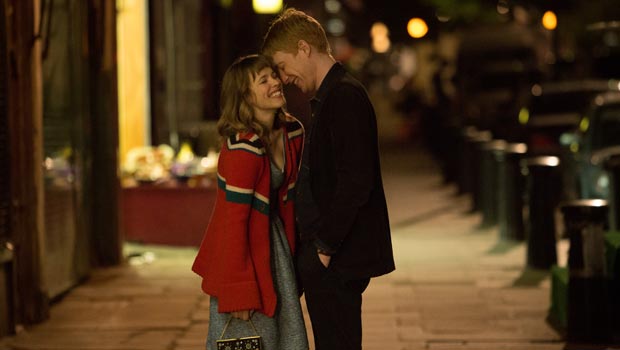Shakespeare‘s film adaptations can easily land into lecture territory instead of entertainment territory, focusing on the bard’s magical language and dramatics but not focusing on the fact they are meant to be enjoyed. Joss Whedon has lent his talents to adapting Billy’s words in his back garden on his twelve days off from The Avengers but that’s like a fact. It’s added pleasure to the film, knowing that he and his friends gather regularly in his house, in his garden and sometimes perform readings of Shakespeare for fun. This is where this film came from – back garden readings brought to life by the push of his wife, Kai Cole. Now we set foot into the life of Joss Whedon with him, through the play and in black and white to enjoy the magic of adaptation.
For those who might not know the story, Much Ado About Nothing is a comedy about pushing sparring lovers Benedick (Alexis Denisof) and Beatrice (Amy Acker) together. While they’re sparking and riffing against each other, there’s the love story of Hero (Jillian Morgese) and Claudio (Fran Kanz – the stoner from The Cabin in the Woods) seeing their eyes meet, hearts beat and so on. While Don Pedro (Reed Diamond) is trying to set up Claudio with Leonato’s (Clark Gregg) daughter, Hero, the rebellious Don John (Sean Maher) puts a plan into action to disrupt Messina as much as possible. It’s serious but funny – there’s a nice delicate balance that Whedon is used to.
People may be concerned that they haven’t studied Shakespeare or the play in question and may be put off by its mother tongue but it’s actually quite simple. Joss Whedon has managed to simplify it without altering the text. His direction makes you understand everything and with the help of his friends – literally – he’s managed to portray a lot through the performances. All of which shine heavily to be serious and that cause the pratfalls to be enjoyable. There’s no sense that a pratfall is a prat falling for a simple gag. Therein lies a myriad of subtle humour, tonnes of chemistry between the cast and a lot of faith in the direction, which has effortlessly tied it together. Listening is recommended as Shakespeare’s language is only as complicated as you accept it; simply enough, you can gauge your meaning most of the time and understand it.
This film adaptation shines in its loved portrayal of a playwright the writer-director clearly admires, as do all of the cast – most of which have experience in the area. Alexis Denisof‘s Benedick has the voice to pull off every moment he has. Benedick is almost a caricature character but restraint in other scenes leads him to be an egotistical, deluded denier. A loveable one, definitely, as he rolls around the garden. Amy Acker’s Beatrice has wondrous moments of unwanted demand dealt with delicately while denying true feelings that trip her up. Nathan Fillion‘s Dogberry is a self-conscious character filled with accidental self-mockery. Surprising the most is Fran Kranz’s Claudio who loses the hair and the weed to provide great moments of great acting. There’s an authenticity brought to this by the stories behind the film, the chemistry in the film and the intimacy of being invited into the director’s house. Together the cast rally around their great director Whedon and provide a lesson in how to do Shakespeare: it is to entertain, not to lecture.




